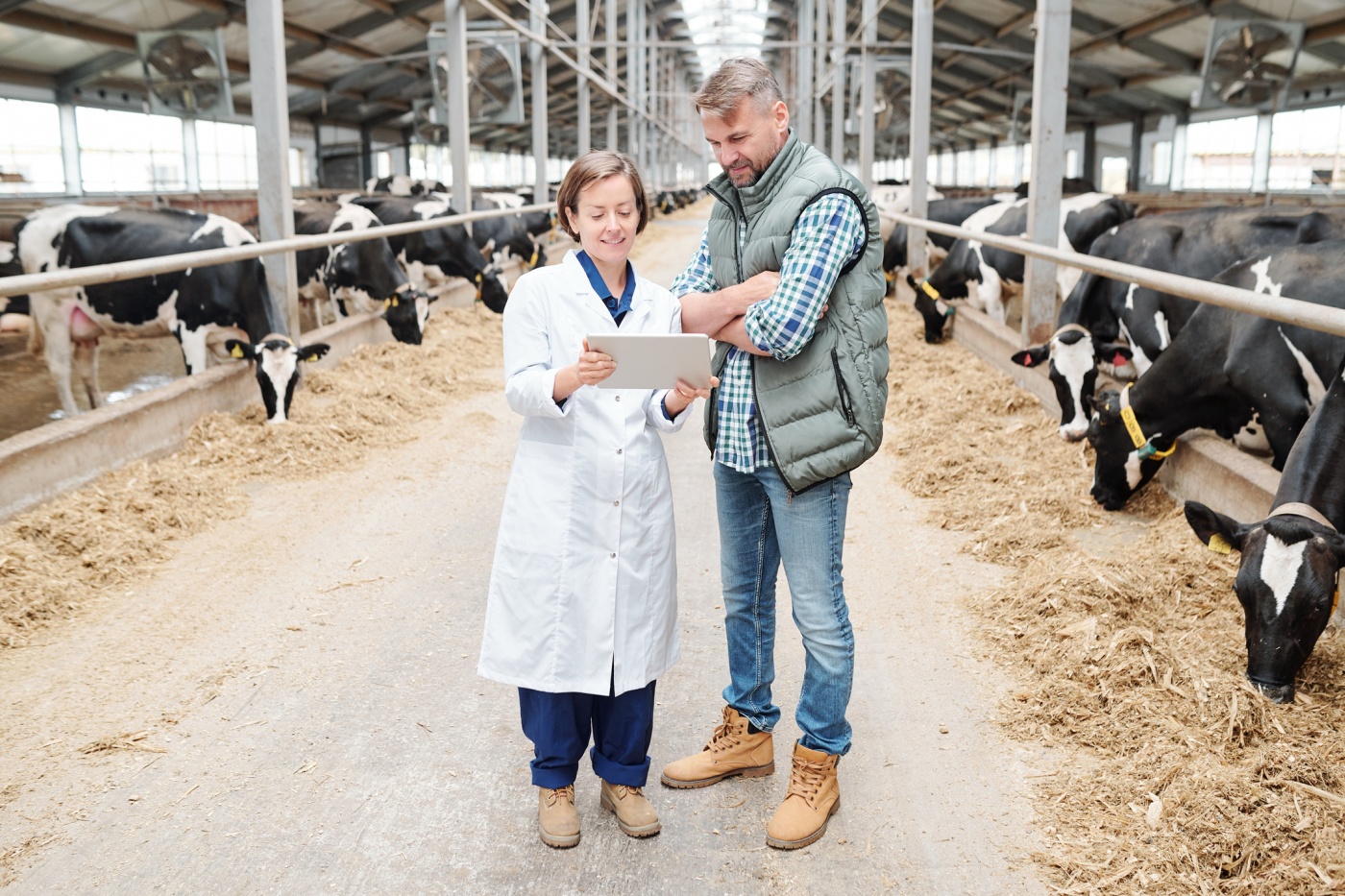🕒: Five minutes

There has never been a tougher time to be a farmer. From the outbreak of Covid-19 to ongoing issues such as global warming and financial downturns, there has never been more threats to the industry than there is right now.
As such, it should come as no surprise to find that more and more farmers are looking to diversify their farms in order to overcome the growing number of threats looking to ruin their livelihood. As the pressure on profitability grows, farmers are finding themselves having to seek out more viable options to combat the ever growing threats. One such option which has emerged is franchising.
Franchising
The franchise industry in Europe is now worth close to €675 billion with over 8.4 million people currently employed in the sector. You are five times more likely to operate a successful franchise than you are starting up your own independent business. This provides farmers and their families with an alternative solution by offering the option of becoming part of an already successful business while also bringing along with it a significantly reduced risk.
Franchising allows a business (franchisor) to grant an individual (franchisee) the right to run their own business selling a product or service under the franchisors business model and brand identity. It is a powerful growth strategy which has been proven to be one of the most effective methods for a brand to achieve global coverage and recognition. While results may alternate depending on the work put in by the franchisee, it usually results in a better financial performance due to the aforementioned coverage and recognition, as well as the support of the franchisor which allows for a greater chance of survival than one would get with alternative business forms.
Agricultural franchising is one of the newer innovations to emerge in the franchise industry and could be considered to still be in its infancy. It offers the potential solution to a number of problems plaguing the agricultural sector. These include;
- Outdated management techniques
- Lack of managerial talent
- Lack of access to credit markets
- Inadequate quality of available agricultural inputs
- Poor information on agricultural inputs
- Monopolistic market structures in the downstream sector
Therefore, agricultural franchising provides a modified version of franchising that can serve as an alternative form of organisation for companies producing agricultural products who are facing such challenges. By providing such functions, the franchisor can improve the competitive position of farmers who have become franchisees. But just how exactly can franchising go about solving these problems? To gain a better understanding of that, you would need to better understand the advantages that come with franchising.

The Advantages
Franchising brings with it a number of advantages. If it didn’t then what would be the point of investing in the industry? However, whether these advantages benefit you in the areas you need is the bigger questions and one that you may need to take some time to think about. Such advantages are;
- Effects from Transfer of Management Skills – From the perspective of the franchisee, one of the biggest advantages is the use of an already tried-and-tested business model. This is a massive time saver as it eliminates many of the early stage testing methods that a fresh start-up business would need to worry about and invest time and capital in. This allows for less innovative farmers to learn from those more innovative and experienced by imitating them.
- Access to Credit Markets - Agricultural franchising helps farmers to solve the problem of financing investments through reducing transaction costs and improving the execution of agricultural credits. If the agricultural franchisor becomes an intermediary in providing loans to its franchisees, they will have to bear virtually no additional transaction costs, because they will have already collected the relevant information on the selection of franchisees. The agricultural franchisor can manage franchisees’ loans more efficient than any agricultural bank, let alone a bank in another specific sector.
- Centralisation of Marketing – A centralised marketing plan can take years to properly carve out and implement, as well as cost a lot of money to research and put into practice. Thankfully, all this will have been done by the franchisor and will already be ready for the franchisee to use. It
- is a management function that offers significant advantages for agricultural franchising and therefore should be included in the mix of services that provides franchisor. Franchisor has a better negotiating position and can get more profitable contract with the buyer than a farmer.
- Procurement of Inputs - Procurement of inputs is a management function provided by franchisor which allows franchisees to gain a competitive advantage in the market by finding the best suppliers and service providers available. It represent another important advantage of agricultural franchising.
The Disadvantages
However, it is also important to remember that you must take the bad with the good. While there are advantages to agricultural franchising, there are also disadvantages. These include;
- Initial Payments – The initial franchisee fee and royalty payments can be high. However, this is done to protect the franchisor and act as an insurance policy.
- Monthly Payments – Franchisees have to pay percentage of the monthly gross to franchisor reducing their profit potential.
- Limited Creativity – It is important to remember that there is limited creativity and flexibility in agricultural franchising compared to that of other sectors. This is because franchise contracts usually left little or no opportunities for franchisees to express their creativity. However, it should be remembered that this isn’t always the case and different franchisors vary.
- Exploitative Character - Before franchisees sign a franchise agreement, there is competition between different them and the franchisor, as well as other franchises competing in the same territory. However, when franchisor and franchisee sign the contract, they enter into a bilateral long-term business relationship. Although franchise agreement may specify a number of unforeseen circumstances, it is beyond human capabilities to write a contract that covers all contingencies that may arise during the contract period. The franchisor may have more information about the relevant contingencies than franchisees, due to their previous experience. This can sometimes lead to an asymmetric distribution of information about the relevant circumstances.
Overview
As is the case with most franchise sectors, there are both advantages and disadvantages to agricultural franchising. It is up to the franchisee to determine if the positive outweigh the negative and if franchising is the option for them.
One of the most significant benefits for franchisors refers to the rapid expansion and faster coverage of agricultural markets through a large number of franchisees. In this way, a larger franchise network can be formed which includes faster growth with less risk. On the other hand, the some of the biggest disadvantages for franchisors is the reduced ability to control franchisees, possible problems in relations with franchisees, as well as a lack of confidence in the franchise system.
For more information of agricultural franchising, check out
Teagasc, the Agriculture and Food Development Authority. Teagasc provides a very well researched and in-depth factsheet on
Franchising for Farms which looks at the advantages and disadvantages of investing in a franchise, the steps involved, as well as the key decisions when drawing up a franchise agreement.














